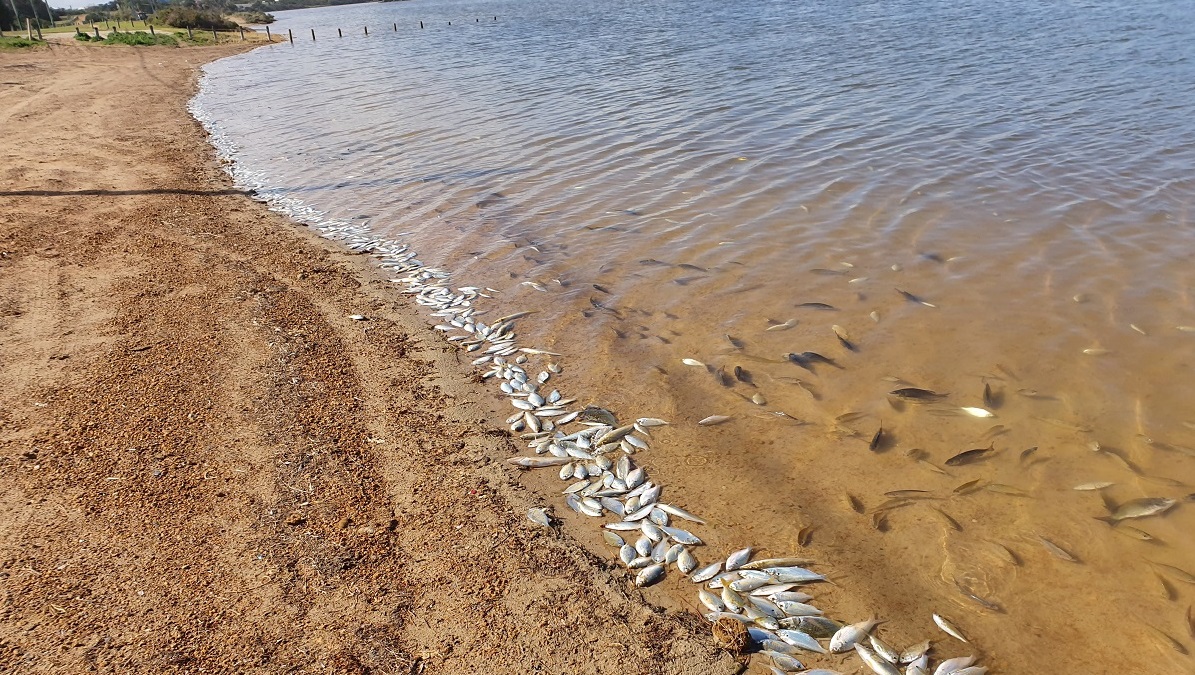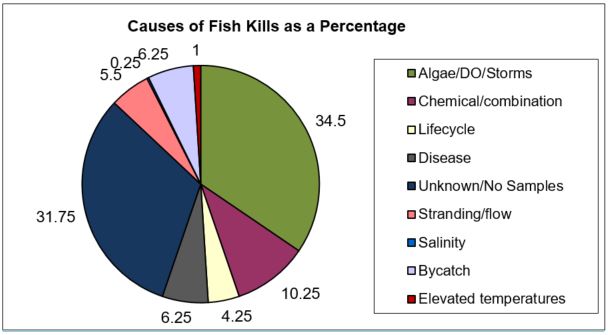Report a fish kill
If you see a fish kill, please report it immediately to our FISHWATCH 24 hour hotline on 1800 815 507.
Please note where and what you saw including numbers of dead fish and species affected (with GPS coordinates and photographs if possible).
What is a fish kill?
A fish kill is the sudden and unexpected death of a number of fish or other aquatic animals such as crabs or prawns over a short period of time and often within a particular area in the wild. Fish kills have been recorded in Australia and overseas for thousands of years and are often the result of natural events.
Fish kills can occur anywhere in WA's fresh and marine waters and may happen at any time throughout the year. Most fish kills occur as a result of fluctuations in the natural environment with the most common cause being algal blooms and resulting water quality issues such as low oxygen or production of toxins.

|
|
|---|
Reasons for a fish kill
Fish kills can occur due to a wide range of factors including:
Environmental factors such as changes in salinity, temperature, acidity levels, dissolved oxygen levels and significant algal growth;
natural events such as part of the lifecycle of the species in question;
pollutants including pesticides, chemicals and sewage; and
parasites and pathogens that contribute to seasonal disease outbreaks in fish populations.
Fish kills can be due to one or more factors, usually in combination, and testing can take some time. In many fish kill events the cause is unkown as the environmental conditions change so quickly and there is often only a short window in which to collect quality samples.
Response
DPIRD is responsible for responding to fish kill events that occur in ocean environments, but when necessary we work together with other WA Government departments.
The Department of Water and Environmental Regulation (DWER) manages investigations of fish kills that occur in estuaries, rivers and naturally occuring inland water bodies.
The Department of Biodiversity, Conservation and Attractions (DBCA) manages investigations of fish kills that occur in the Swan Canning Riverpark.
The combined efforts of DPIRD, DWER and DBCA have resulted in responses to an average of 24 fish kills per year since 2010. The earlier we hear about fish kill events, the better chance we have of responding and taking suitable samples that will help us establish what the cause might be.
Investigating the cause of these fish kills helps to better understand the dynamics of these complex ecosystems and improve the management and care of our waterways and environment.
Stay safe around fish kills
We advise people to stay safe by following the general Department of Health advice:
- not to swim in areas of water with large numbers of dead and decomposing fish because they may contain high levels of bacteria and have an objectionable odour;
- not to fish in water with large numbers of dead fish;
- temporarily not to collect or consume fish from the waters near a fish kill;
- not to collect and use dead fish for bait or consumption because of the risk of high levels of bacteria; and
- not to allow pets and other animals to come into contact with dead or decomposing fish either in the water or on shore.
Report fish kills promptly to enable a quick response by authorities to prevent exposure by other water users
Further information
